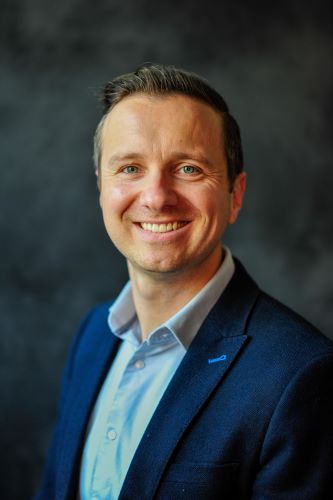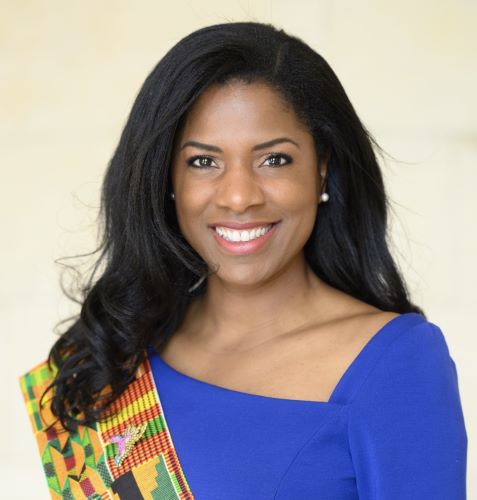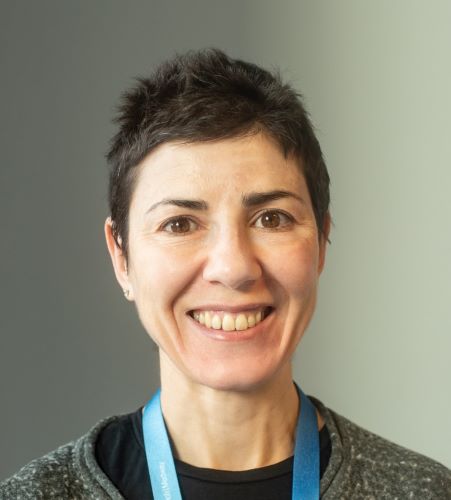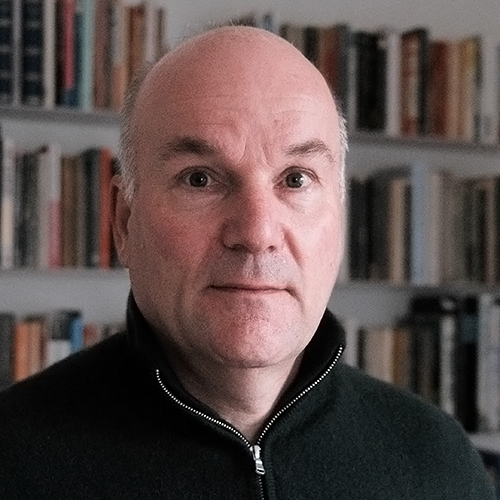SHIFT, which is now into its 18th year, is our annual conference of learning and teaching in Higher Education. The name SHIFT reflects the ever changing landscape in Higher Education. Each year, our conference focuses on a new and current theme relevant to learning and teaching in the higher education sector. Providing a platform to a multitude of speakers in the UK and internationally, it facilitates opportunities for research and knowledge exchange and sharing innovative practice.
Registration for SHIFT 2025 has now closed - Please refer to our programmes on how to access both our days
Key Dates
| Proposal submission opens | 30 September 2024 | |
| Delegate registration opens | 30 September 2024 | |
| Proposal submission deadline | 28 October 2024 | |
| Proposals receive feedback | 15 November 2024 | |
| Programme announced | 16 December 2024 | |
| Delegate registration closes | 2 January 2025 | |
| Conference | 8 January 2024 - Online (Open to everyone) 9 January 2024 - In-Person, Greenwich Campus (For University of Greenwich Staff and Post-Graduate Students only) | |
Conference Theme
Higher Education in a changing world: Adapting to the now, preparing for the future
As the world around us changes, so too must our universities and approaches to teaching. As we see socio-economic shifts, changes in policy, advancements in technology, and the growing effects of climate change – How do we prepare ourselves and our students for the now and for the future?
For SHIFT 2025, we will be looking at these four core areas:
- Inclusivity and wellbeing
Socially just approaches to teaching and learning and the university experience. Prioritising equity amongst students, colleagues and the wider sector - Sustainable, authentic and real-world approaches
Authenticity and sustainability are key characteristics of assessment and learning. Embedding skills that promotes learning based on practices found in workplaces - Technology Enhanced Learning
The integration of various technological tools, platforms, and approaches to create more engaging, interactive, and personal learning experiences for students - Partnerships and co-creation
Enhancing the way we work with our students, employers, communities and key stakeholders to prepare for the future
Keynote Sessions
What lies ahead for student engagement in higher education
Tom Lowe, Wednesday 8 January
We know from our own experience as educators, that when we focus on engaging students, and when students engage with the learning opportunities presented, that generally, they are more successful. In fact, empirical research continues to support that highly engaged students in their education, often leads to better outcomes relating to grades, retention and even a sense of belonging (Thomas and Allen, 2022; Schnitzler et al. 2021; Snijders et al 2020). It is student engagement at the heart of our higher education, yet since the pandemic, there has been lower attendance in classes, footfall on campuses and even personal interaction in our classes.
As personal life is becoming more passive, where we are shopping online more, streaming movies over visiting cinemas, sending voice notes instead of calling, and responding to texts with simple emojis. The way we engage with one another is changing. Therefore when it comes to teaching in the modern university, we must reflect upon our engagement techniques in class to support student success. With perhaps convenience often overtaking learning priorities, how we shape university education is up for debate - where colleagues report students wanting to be ‘fed’ content and expressing concerns about lower confidence levels potentially impacting graduate employability. It is within this context that this keynote we will discuss what is working. We will also identify how we can increase engagement in taught sessions, through active engagement methods and changing mediums of activity.
About Tom Lowe

Tom Lowe has researched and innovated in student engagement across diverse settings for over ten years, in areas such as student voice, retention, employability and student-staff partnership. Tom works at the University of Westminster as Assistant Head of School (Student Experience) in Finance and Accounting where he leads on student experience, outcomes and belonging. Tom is also the Chair of RAISE, a network for all stakeholders in higher education for researching, innovating and sharing best practice in student engagement. Prior to Westminster, Tom was a Senior Lecturer in Higher Education at the University of Portsmouth, and previously held leadership positions for engagement and employability at the University of Winchester. Tom has published two books on student engagement with Routledge; ‘A Handbook for Student Engagement in Higher Education: Theory into Practice’ in 2020 and ‘Advancing Student Engagement in Higher Education: Reflection, Critique and Challenge’ in 2023, and has supported over 40 institutions in consultancy and advisory roles internationally.
Showcase Panel: Adapting to the now, preparing for the future
Professor Louise Owusu-Kwarteng, Dr Denise Miller, Dr Kenisha Linton, Dr Silvia Colaiacomo, Shapna Compton, and Luisa Ares Vilas, Wednesday 8 January






Our panel of Greenwich academic and professional service staff will be joined with student representatives as they look at our conference theme: adapting to the now, preparing for the future in higher education.
They will be discussing their experiences and views on the changing world in higher education. Exploring the challenges we face today and how we can overcome them, making way for a brighter future for both staff and students.
There will be opportunities for audience members to ask our panellists questions and be part of this wider discussion
Exploring Space… and how we negotiate and navigate it in post-digital education
Professor Andrew Middleton, Thursday 9 January
Today technology is everywhere – it is part of everything we do. We have seen over the past three decades how technology has rapidly grown and become part of our everyday life, including learning and teaching. A recent sector-wide QAA Collaborative Enhancement project ‘Harnessing Multimodalities in Digital Education’ invited four UK universities to explore teaching and learning in the post-pandemic world. From this 2 year project emerged new realities and possibilities. It showed how certainties in the higher education sector have been disrupted and how modalities are shifting and expanding what is possible. From pre-pandemic boundaries being renegotiated, changes in the role of the campus, to the proliferation of AI: education is always shifting. It is clear that volatility, uncertainty, complexity and ambiguity characterise our experiences and outlooks more than stability in education. This flux demands we develop innovative mindsets if we are to thrive as students, graduates, and educators.
In this Keynote, we will explore how multimodalities in learning and teaching, with a focus on the spaces and technologies we use, can help us to address various strategic priorities. We will explore how education can harness multimodalities in relation to:
- Spatial Fluency – how our use of space and technologies has changed since the pandemic, and the implications of this for education.
- Multimodal Assessment – ensuring assessment reflects technological and spatial shifts, opening opportunities for more authentic and personalised learning experiences.
- Creativity in higher education – how space affects the creativity, agility and resilience of staff and students.
About Professor Andrew Middleton (PhD, NTF, PFHEA)

Andrew is Deputy Head of Anglia Learning & Teaching at Anglia Ruskin University where he lead the development of the Active Curriculum and other strategic initiatives.
He is known for his leadership of academic innovation in UK higher education over 30 years. He has led projects and networks to explore the potential of digital media to enrich assessment and feedback, and continues to be a leading voice in the Global Active Learning Network which has supported 100s of academics to share their innovative practices through annual conferences, festivals, and books. Andrew’s research focuses on spaces and places for learning. This has led to the development of spatial fluency as a post-digital and post-pandemic appreciation of learning spaces and multimodalities – a broader range of possibilities for teaching and learning practices involving different modes of communicative action (audio-visual, spatial, and behavioural) that work together in the expression, creation, and representation of meaning in and through the learning of staff and students.
In all this work Andrew is committed to understanding and developing education from an experiential perspective in which the student and the teacher find a high degree of agency and enjoyment.
Proposal Formats
We welcome submissions that align with the Conference sub-themes in the following formats:
Presentation
20 minutes with 5 minutes for questions
A traditional conference presentation for sharing ideas with the audience. This can be about a research project (whether complete or in progress) or a case study of a teaching practice you wish to share. We encourage staff presenting about their practice to consider co-presenting with students or with colleagues from other disciplines. Presentations should make clear to attendees how particular principles and methods can be applied in teaching practice.
Workshops
50 minutes with 10 minutes for questions
Interactive sessions based on engaging the audience with a key idea, practice, tool or research outcome. Workshop facilitators may utilise their own practice, research or scholarship as a basis for the workshop. Your proposal must outline how you intend to encourage interactive participation in your session (e.g., through specific activities).
Showcase or Panel Discussion
50 minutes with 10 minutes for questions
Discussion sessions featuring a group of colleagues (around 2-5) from the same or different programme or school. These informal sessions will share a variety of practices (e.g., technology use, exemplary practice, etc.) with an emphasis on how they connect. We encourage staff presenting about their practice to consider co-presenting with students.
Lightning Talk
7 minutes and 3 minutes for questions
A short presentation on a topic of your choice. This can be about some research (particularly in progress), new ideas or sharing expertise in a quick, insightful and easily digestible format.
Submit a Proposal
We are looking for proposals that focus on one or more of the core areas detailed in our conference theme using one of the listed proposal format types.
We welcome proposals from all staff and students. Co-presenting with staff and students is encouraged, as well as cross-disciplines.
Proposal submission closed - we are no longer accepting proposals for SHIFT 2025.
Reviewing Process
Proposals are assessed according to the following criteria:
- Contribution to the conference theme and sub themes
- Clarity and coherence of the proposal, including the problem or question addressed, findings or solutions offered, and practical take away learnings
- Theory and/or evidence suggesting the effectiveness of highlighted practices, solutions or findings or quality of reflections on lessons learned
- Likely value to a range of participants across contexts, fields, disciplines.
All submissions are blind peer-reviewed. Authors will be notified about the result of their submission via the e-mail provided in the submission form
Registration
Our conference is free and welcomes all staff, students, and external visitors to our university.
Our first day, 8 January, will be held online via Microsoft Teams and welcomes all to take part and attend.
Our second day, 9 January, will be held in person on Greenwich Campus. This is for University of Greenwich Staff and Post-Graduate students only. Free refreshments will be provided.
Registration for SHIFT 2025 has now closed - Please refer to our programmes on how to access both our days
Contact us
For any enquiries about SHIFT, please contact our team by clicking on the button below.
Privacy Notice
When registering to attend or submitting a proposal to present at our conference, we process information about who you are and your contact details; information that you provide on adjustments that may need to be made to enable you to attend and your dietary requirements. This information will be used by relevant University of Greenwich employees to manage your attendance and participation at SHIFT 2025 and enable you to provide your feedback afterwards. The data that you provide will be held for a period of 5 years and will not be shared with third parties. General information about the university's approach to data protection and to your rights can be found here.